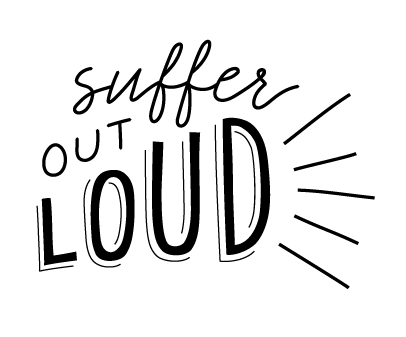There Might Be No Better Way To Phrase It - Let's Suffer Out Loud
By Josh Bergan
That day is clear, even 25 years later.
It was a Tuesday, the first day after Christmas break. I was in my bedroom listening to music when the commotion of my inconsolable mother, escorted by my brother, came up the back stairs to our house. I ran to meet them, and my brother simply said, "Dad's dead."
I took my mom from my brother and sat next to her in the kitchen, she on a chair and me squatting with my arm around her. Sobbing, she kept repeating, "Why did he do it, why did he do it...."
"He did it on purpose?" I asked. She nodded.
We were shocked. My dad had never been treated for any mental illness, nor was he seeing a therapist, nor had he mentioned feeling down. We had been a typical, happy-go-lucky, Norman Rockwell family.
We learned later that he had been fired from his long-time job earlier that day. He came home, had some beer, talked to no one, and made his irreversible decision.
If my dad could have talked about how he was feeling, I like to think he would have found what he needed. If he'd have felt comfortable admitting that he was hurting, or let the family down, or felt like a failure, he could have talked through it.
But he didn't.
Through my own grief, I learned that talking about your feelings, for men in particular, is not easy. It takes courage and practice, but I found that it gets easier over time. It's a habit that has stuck with me.
If you can find that strength amidst your pain, you'll likely find that others can relate to your pain or sadness or worry or anxiety, and thus you are not failing. You might also find an uplifting compassion that can help change your outlook. It's human to feel bad and/or hopeless and/or listless and/or many other difficult feelings - sometimes for long periods of time. And while broaching these topics can be difficult, it can also be a game changer.
I continue to face mental health issues in my life, but I combat them with openness. Encouragement to talk about it is important to me. Let's normalize the idea that we all face inner pain, let's share how many of us hurt, and let's believe that it can get better. There might be no better way to phrase it - let's suffer out loud.
That's why I support this fantastic organization, and encourage everyone to join me. We all hurt. Let's get better together.
